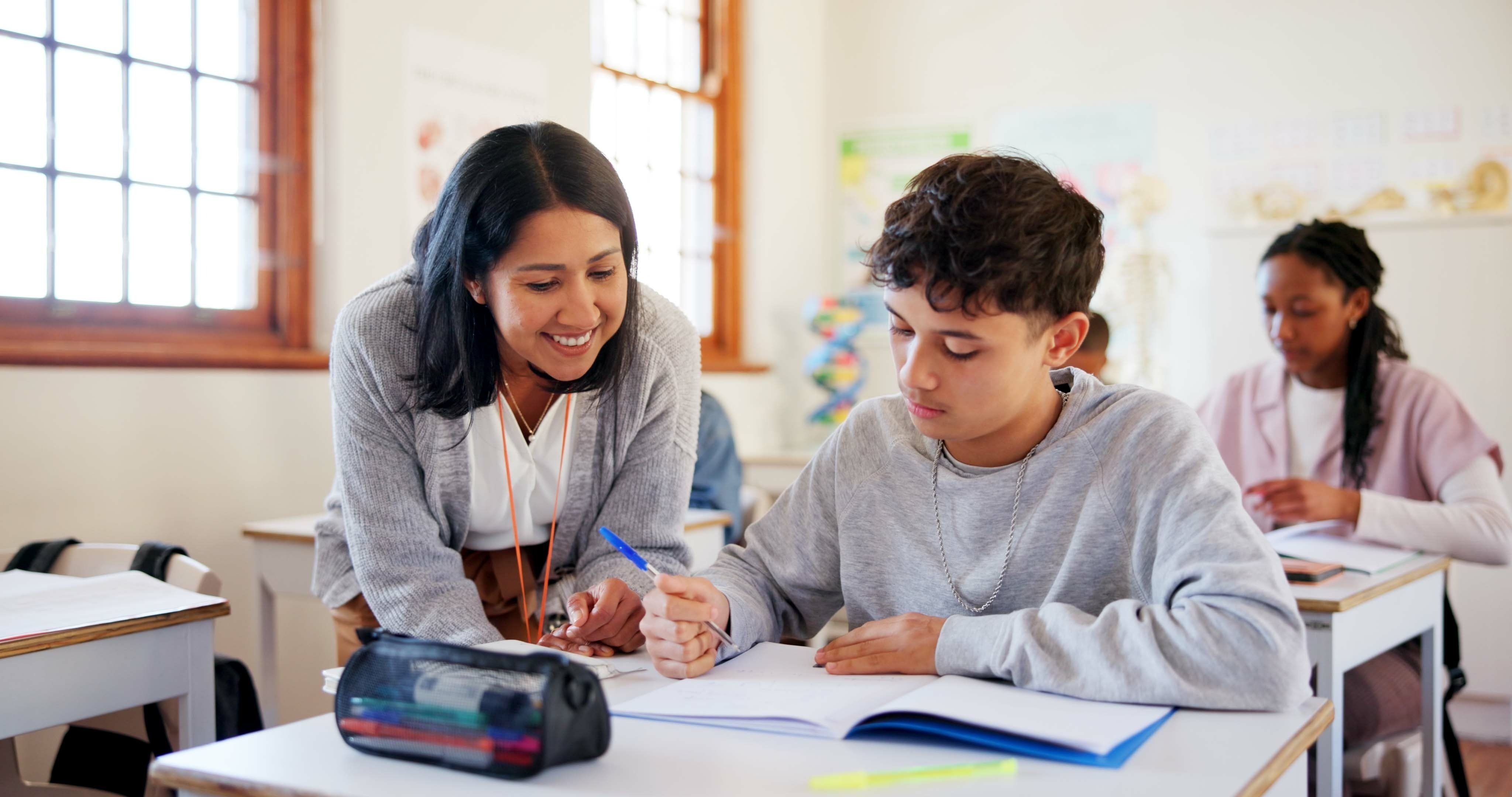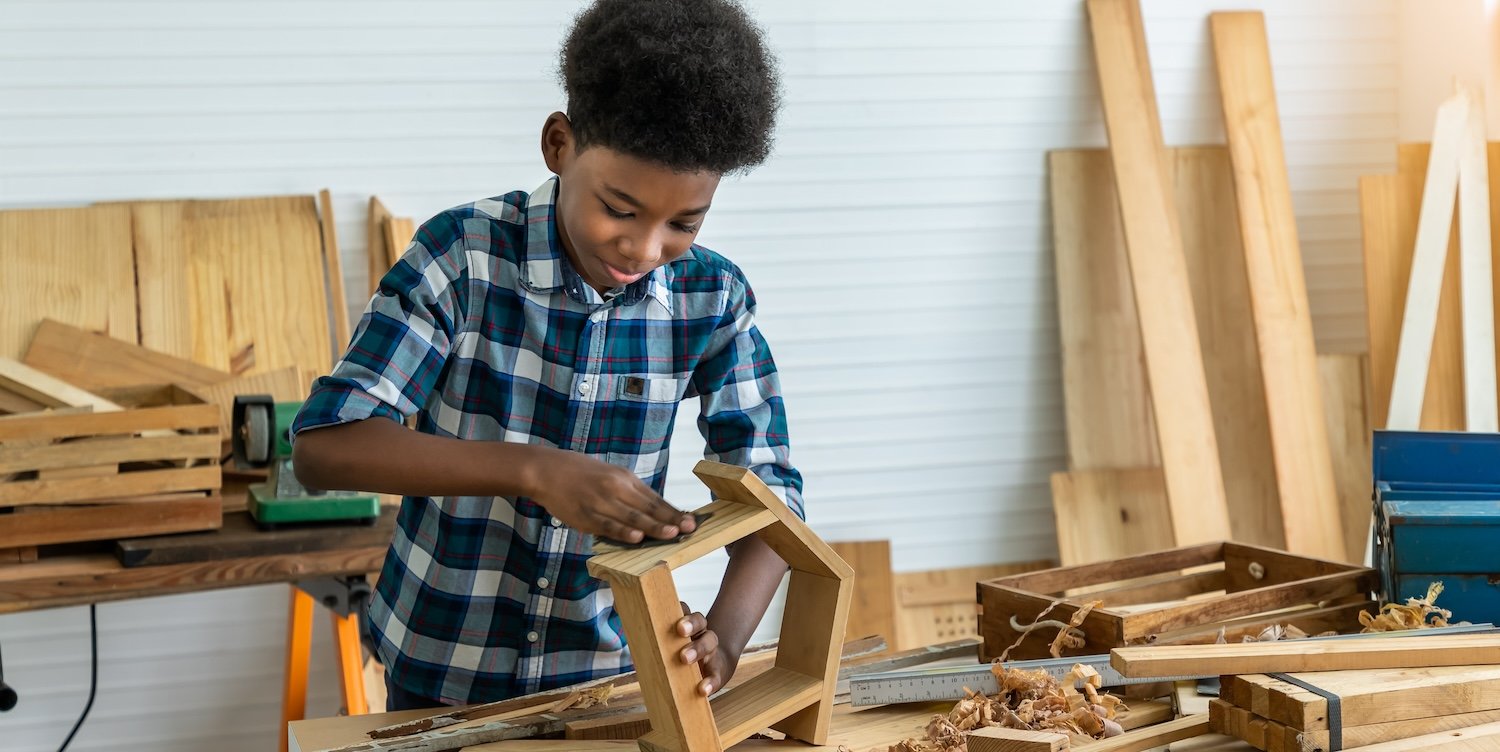Guiding Toward Good

I often wonder if my parents faced similar challenges that my husband and I currently face while raising our sons. Were they concerned about who my friends were? Were they worried about the images I might have seen on cable television or someone’s VHS tape, and if so, how might those images impact me? Did they fret about my academic performance and future aspirations? Did they consider my social-emotional well-being, even if they were not familiar with the term?
Being a Gen Xer, my parents never seemed to worry. Without apparent concern for potential health ramifications, we indulged in sugary cereal and after our Saturday morning chores were completed, we spent the rest of the day, albeit until noon, watching He-Man, the Smurfs, and other classic cartoons. After a simple lunch of bologna and cheese, grapes, and Tang, we engaged in various family activities, from bike rides, berry picking, sledding, and more. Whatever the season brought, we embraced the moment. My parents never appeared anxious; instead, they provided guidance, acted in accordance with their values, and showered us with love and protection.
Inevitably, I, like many others, can recall challenging incidents from my childhood that, while not derailing me, have caused occasional pauses along my journey. One vivid memory took place when I was around eight years old. My brother and I were playing our version of baseball in the front yard while our dad worked on a car and our mom cheered on us all. Despite the perceived safety provided by our extended driveway, we weren't shielded from potential verbal assaults. On this particular day, an unexpected verbal attack occurred. I remember "the word" being hurled from a passing car, and though I didn't fully understand its meaning, I sensed it was meant to replace our current joy and peace with sadness and fear.
My dad reacted quickly. He pursued the offenders, ensuring they returned to apologize and also involving the police. Despite the incident's lasting impact, my dad's resolute response revealed a side of him I hadn't fully known. Regardless of one's perspective on his actions, he, like most parents, was determined to love and protect us at all costs. Unfortunately, even his love couldn't shield us from life's proverbial oncoming traffic. This incident wasn't the last emotional collision we faced, but with our parents' guidance, we navigated through them, needing only minor repairs along the way.
I don’t believe a list of the various challenges and atrocities that we face as a society needs to be presented. We all know them too well. The media reminds us, even when we want to forget. Our world can be complex, uncertain, and overwhelming, making the role of parents crucial in shaping the values and character development of children. Nurturing goodness in today's challenging environment demands intention, resilience, and a commitment to fostering qualities that will guide our children through life's twists. It turns out, this is not so different from what my and other good parents, have always done well. They provide appropriate levels of space and support. It can be done.
Attach the Training Wheels
By no means would I attempt to diminish the significance of child-rearing, as it poses an immense challenge, especially today, but raising a child can be likened to the stages of teaching children how to ride a bike. Often, training wheels are essential before venturing into the hands-free phase. The purpose of training wheels is to help our children stay upright on a bike providing balance and limiting the potential for falls.
The metaphorical training wheels extend beyond teaching basic manners. While it's important to instruct our children to say "thank you" and "please," equal if not greater time needs to be dedicated to how they respond to peer pressure, adversity, and the need for empathy toward others.
Navigating the nuances of this world requires practicing difficult conversations with our children, addressing everything from potential harm from others to threats like drugs, alcohol, and pornography. Courageous conversations that are not only age-appropriate and honest but also consistent, help contribute to creating a safe space for our children to express themselves. We have to encourage our children to share their thoughts, fears, and dreams. This fosters trust and understanding. If they do not trust us, their parents, they could inadvertently trust the untrustworthy. Practicing responses to various scenarios together can also equip your children to face unexpected challenges without feeling paralyzed.
Truly, it’s not enough to have crucial conversations after the training wheels have been removed. As parents, we must prepare our children to ride without us. Some of the most beneficial conversations occur when children are young and preparing to ride without us. Those lessons and instilled beliefs help to navigate their path for a lifetime.
Just like training wheels, a trusting and supportive relationship helps keep our children safe and upright, providing balance and limiting the potential for falls.
Holding onto the Seat
Teaching children to navigate challenges with resilience is a priceless gift. I remember when my parents first removed my training wheels. Initially, they ran behind me, holding the seat of my bike, recognizing that I wasn't quite ready to ride on my own. They gave me a moment to gain my bearings, build confidence, and practice balancing. As I improved, they informed me they might occasionally let go, and they equipped me with a backup strategy on how to quickly brake and put my legs down to prevent falling. I remember not feeling concerned because we had practiced, and I knew what to do.
Whether we are teaching our children how to ride a bike or deal with a challenge, there are strategies to better equip them to muster success and resilience. At a recent parent event, our School Counselor, Leslie Muha, offered these ideas to families:
- Offer words of encouragement and reassurance. Let them know that facing challenges is a natural part of life and that you believe in their ability to overcome difficulties.
- Help them set realistic goals and expectations. Discuss the importance of perseverance and that setbacks are not failures but learning opportunities.
- Avoid immediately providing solutions. Instead, guide them in developing their problem-solving skills which is often difficult for parents.
- Recommend activities or practices, such as mindfulness or journaling, that can help enhance emotional resilience.
- Acknowledge their achievements, no matter how small, and celebrate their efforts to handle challenges independently.
We naturally want to prevent the pitfalls and challenges in our children’s lives; in doing so, we can mitigate the risks a little too much by stripping them of the needed problem-solving skills that should develop to help them build resiliency. As I stated earlier, if we had the needed conversations while our children’s metaphorical training wheels were on, they are in most cases equipped with a toolbox of skills that will help them to be able to make small yet important decisions for their particular stage of life. These decisions range from learning to navigate a playground disagreement to saying no to drugs or alcohol.
Building resilience is an ongoing process, and your consistent support and encouragement contribute significantly to your children's ability to navigate life's challenges. Eventually, all parents have to let go of the seat.
Riding Independently
As our children grow, striking a balance between fostering independence and providing guidance along their bike's path becomes crucial. It's essential to give them the space to make decisions, learn from mistakes, and explore their interests while being a constant source of support and encouragement. They should feel reassured that you're nearby, ready to grab the back of the bike seat if needed. This helps to cultivate a sense of responsibility and self-confidence.
Here are some ways to encourage their independent journey:
- Remind them consistently about responsible online behavior, emphasizing the impact of their words and actions.
- Monitor screen time, ensuring a healthy balance.
- Know their friends and their friends’ parents.
- Maintain open communication to address their concerns and experiences.
- Acknowledge and celebrate their positive contributions and efforts.
- Recognize and praise acts of kindness, reinforcing the importance of making a positive impact on the world and showing empathy.
Parenting is both challenging and rewarding, it demands dedication and adaptability. By starting with training wheels, then holding the bike seat, and then providing direction on the bike path while staying out of the way, we empower our children to thrive as compassionate, responsible, and resilient individuals despite the challenges of this world.
Soon, they'll be pedaling along to places you could not have imagined.
Lisa Cummings currently serves as the Director of the Lower School. Mrs. Cummings was formerly the Assistant Principal at Arbor Elementary School in Euclid, Ohio. Prior to her tenure there, for more than 20 years Mrs. Cummings served in a variety of teaching and leadership positions at Bryden Elementary and Hilltop Elementary Schools in Beachwood, Ohio, including as Subject Coordinator, Grade Level Team Leader, and on the district's Equity and Engagement Team. Mrs. Cummings earned her Bachelor of Arts degree from the University of Akron, Master of Education degree from John Carroll University, and Master of Arts in Educational Administration degree from Ursuline College.


%202.jpeg)
